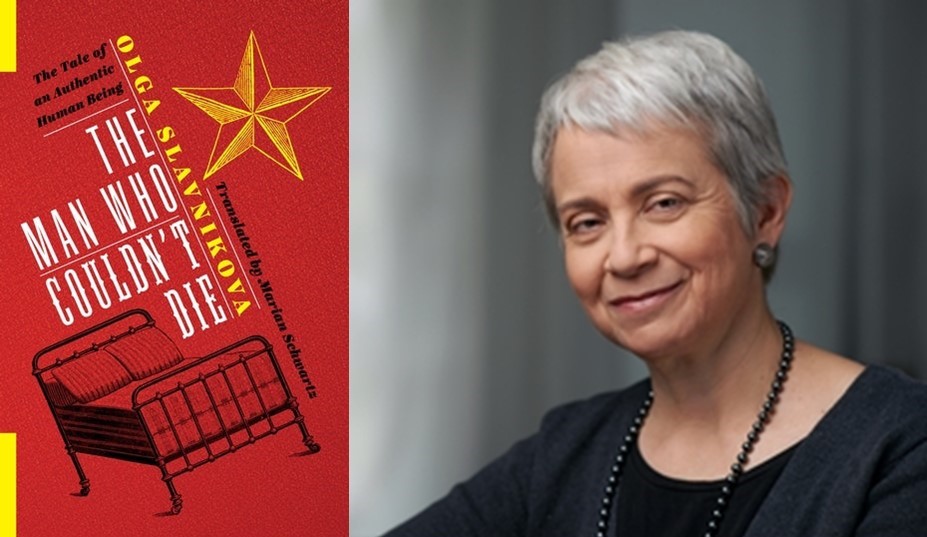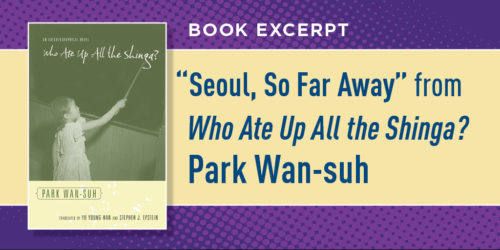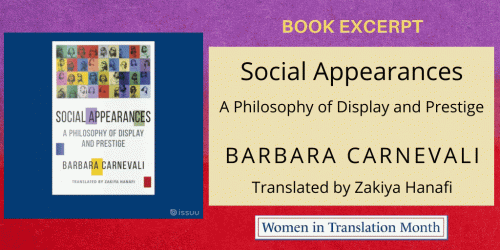Joshua A. Fogel on Yosano Akiko’s Travels

Our celebration of women poets in translation continues today with a guest post by Joshua A. Fogel, who translated Yosano Akiko’s Travels in Manchuria and Mongolia: A Feminist Poet from Japan Encounters Prewar China. In 1928 at a highpoint of Sino-Japanese tensions, Yosano was invited by the South Manchurian Railway Company to travel around areas with a prominent Japanese presence in China’s northeast. This volume, translated for the first time into English, is her account of that journey. Though a portrait of China and the Chinese, the chronicle is most revealing as a portrait of modern Japanese representations of China—and as a study of Yosano herself. In this piece, Fogel reflects on his first encounter with the travel writing of Yosano Akiko and his translation of her work.
• • • • • •
I first encountered this text, Man-Mō yūki, roughly twenty-five years ago. I was researching Japanese travel writing about China over the period from 1862, the first modern Sino-Japanese encounter which produced a slew of Japanese narratives, to 1945, the end of World War II. Her work was excerpted in a much longer collection, and it all but jumped off the pages at me. It was so insightful, so intelligent and learned, and so balanced for the time it covered (mid-1928) that it off guard.
I didn’t know at that moment who Yosano Akiko (1878-1942) was, but I didn’t know who the majority of my travel writers were. In her case, I proceeded to find out and discovered a gigantic hole in my knowledge. She was a feminist icon and renowned poet, and she blessed us with this wonderful account of her travels at a particularly difficult time in modern Sino-Japanese relations. She was traveling alone in Manchuria at precisely the time that warlord Zhang Zuolin (b. 1875), formerly in bed with the local Japanese military, was murdered by his erstwhile allies who felt him getting a little bit too big for his britches.
“Despite friendly pressure, I am extremely reluctant to attribute her responses or observations on the Mainland exclusively to her gender, primarily because I have no idea what that would mean.”
Despite friendly pressure, I am extremely reluctant to attribute her responses or observations on the Mainland exclusively to her gender, primarily because I have no idea what that would mean. Men often noted a site and then referred (as if it were part of their active memory) to some obscure ancient or medieval Chinese text in which that site appeared, but this was not a male-gendered observation—Yosano did it, too, and I’m sure they all looked these things up in compendia when they returned home. Similarly, men observed local flora and fauna, just as women did.
So, why does my English translation have “feminist” in the title? Thanks for asking. Yosano was a noted feminist in Japan, and her poetry in this vein is extraordinary, though there is little in her travel narrative that would lead one in that direction. As I think back on it now, I think Jennifer Crewe (now director of the Columbia University Press) suggested it, and who am I to disagree? It definitely works, especially now.
“She was a feminist icon and renowned poet, and she blessed us with this wonderful account of her travels at a particularly difficult time in modern Sino-Japanese relations.”
In the 1990s when I was writing my book on travel writing (The Literature of Travel in the Japanese Rediscovery of China, 1862-1945, Stanford UP, 1996), travel as a field was considerably hotter than it is now. Like many of us in academia, I love to travel and was drawn to travel narratives from earlier times. I also saw them as an untapped source for the study of changing Japanese views of China. The field, when I started out, was largely populated by literature people. As I read through much of their literary-critical output (Mary Louise Pratt, David Spurr, et al.), my response was first and foremost to yawn. But, it also led me to the work of Paul Fussel and V. S. Naipaul which I consumed like gummy bears; and then on to writers well known in other genres, such as fiction, but whose travelogues I had not read: Steinbeck, Dickens, and many others.
Almost twenty years ago, I turned my translation of Yosano Akiko over to Jennifer and Columbia University Press. Whether the translation still holds is not for me to say, though no one of whom I am aware has criticized it. More importantly, Yosano’s observations and insights remain just as brilliant as they were in 2001, and as they certainly were in 1928.








